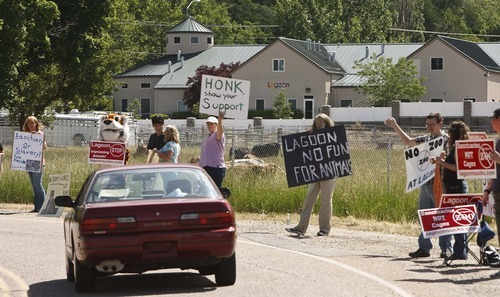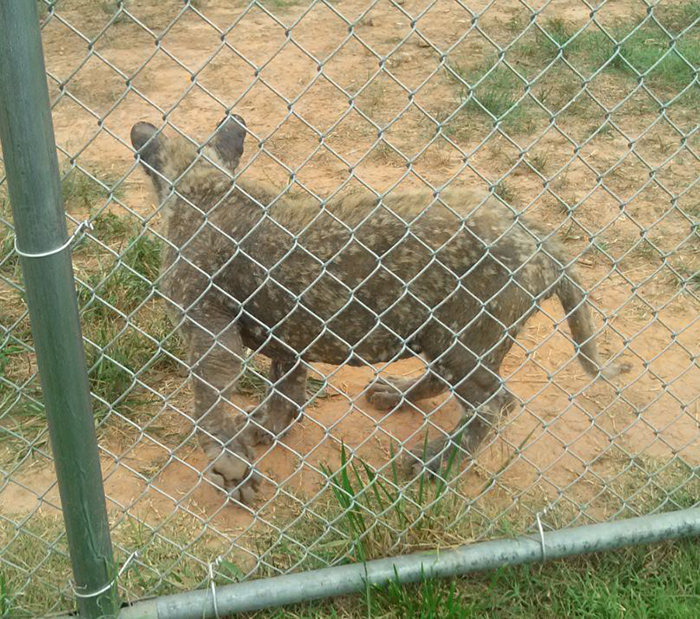Southwicks Zoo
Southwicks Zoo
Southwick’s Zoo is an old, family-owned zoo that was originally an exotic animal broker. Today, the zoo itself appears to be a generally humane facility as far as animal care goes. I could find no major issues in their USDA records and there is no real history of complaints about the zoo. Several of the zoo’s animals are rescues (confiscated pets, surplus from other zoos, etc.), they educate people about why white tigers shouldn’t be bred, and they don’t allow their animals to breed if there is no room for the offspring.
That said, Southwick’s has been criticized for contracting with some pretty disreputable companies to provide additional animal “entertainment”. They’ve recently been named by the IDA as one of the US’s “ten worst zoos for elephants” because, for the past decade, they’ve leased elephants from circuses to provide elephant rides and performances during the summer months.
In 2001, Southwick’s leased a wild-caught elephant named “Judy” from the notorious Hawthorn Corporation, even though the elephant had recently almost killed people during a rampage at a church event. After the incident, the USDA warned Hawthorn that Judy was to be “prohibited from exhibition involving potential public contact,” an order which was clearly ignored. In 2004, the USDA seized Judy, along with all of Hawthorn’s other elephants, as part of a settlement for severe animal abuse. When Judy died in 2007, it was discovered that she had tuberculosis, which she had been exposed to in 2003.
In 2010, another performing elephant named Dondi became ill and died at the Southwick’s Zoo at the young age of 33. She had been housed alone at Southwick’s and forced to do tricks for audiences. A necropsy revealed that Dondi’s molars had fallen out and that her lungs were riddled with tuberculosis, which is transmissible to humans.
As of 2015, Southwick’s had contracted with a California-based elephant rental company, “Have Trunk Will Travel,” to provide elephant rides at the zoo. According to this page:
“HTWT has a history of being notoriously brutal and violent to its elephants who are also rented out to be used in other forms of entertainment including appearances in movies, events, and theme parks. HTWT was caught on video viciously beating elephants, using an electric shock device, and striking a baby elephant over the head and pulling her trunk. These elephants were also observed chained for 12 hours a day, barely able to move back and forth, let alone walk.”
This 2015 article reveals that Southwick’s Zoo maintains the “breeding colony” of capuchins for Helping Hands, a Boston organization which is exempt from USDA licensing requirements and uses brutal methods to train monkeys as service animals. The monkeys at Helping Hands are housed in isolation, and employees have testified that “electric shock packs were attached around the monkey’s waist during training which deliver the equivalent of the charge felt in a typical electric cattle fence to the monkey whenever it performed an action deemed undesirable by trainers. Painful and deforming full-mouth dental extractions were also performed on the capuchin monkeys after incidents occurred involving monkeys biting their owners and trainers.” These methods would be illegal if the facility was not exempt from the Animal Welfare Act.
The president of Southwick’s Zoo, Peter Brewer, is a member of the ZAA’s Board of Directors, and as such, he opposes legislation which would crack down on private menageries. In 2007, he opposed a proposed Massachusetts “bullhook ban” (even though it would exempt Southwick’s Zoo), stating that “bullhooks are useful in calming elephants down during medical procedures. Elephants are usually very hardy. The tool keeps them under control.” In 2016, he wrote a letter to the Kansas legislature opposing legislation which would ban cub-petting in that state. In 2016, he wrote an op-ed arguing that ZAA zoos deserve the same legal exemptions that AZA zoos have, that the ZAA has a better safety record than the AZA (it doesn’t), and that favoring the AZA over the ZAA is nothing more than “special-interest bias.” Given his position at the ZAA and his zoo’s tradition of contracting with circuses, it makes sense that he would oppose regulating them.


